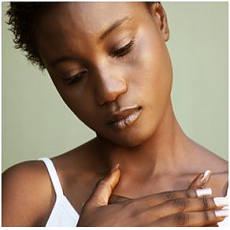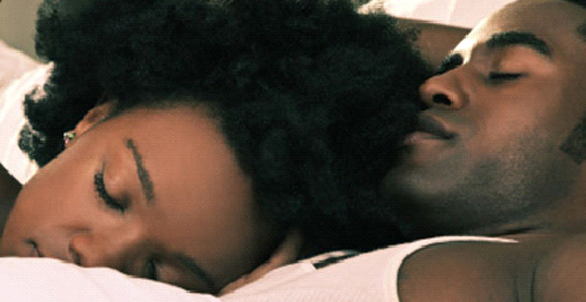Every woman will experience vaginal dryness at some point. The female body is designed to create extra lubrication in the reproductive area to protect the fragility of the uterus and birth canal. The lubrication that we associate with arousal is secreted through the walls of the blood vessels lining these organs. As arousal causes more blood to flow to this area, lubrication increases.
When vaginal dryness occurs, not only is the condition and symptoms very uncomfortable, it can make sexual activity and arousal painful because the body’s natural lubrication process is not working the way it should. Fortunately, for the majority of reasons that vaginal dryness occurs, the solutions to it are easy.
What are the symptoms of vaginal dryness?
Many women will mistake the symptoms of vaginal dryness for symptoms of more serious problems and worry unnecessarily. While it is important to always find out the cause for these symptoms as soon as possible by visiting your doctor or OB-GYN, you should remember that the cause could be simple and not serious. Stress can cause reactions within the body that can aggravate symptoms and make them more painful. The common symptoms of vaginal dryness are:
- Vaginal itching
- Burning or tingling sensation
- Soreness
- Pain and/or slight bleeding during intercourse
- Frequent need to urinate
- Feeling like you need to urinate constantly
These symptoms can indicate other problems so they should be mentioned to your doctor as soon as possible. It is a myth that vaginal dryness is an unavoidable part of aging for women and that they should just “put up” with the discomfort. Relieving vaginal dryness and its symptom is easy to do once the cause is identified.
What are the possible causes of vaginal dryness?
The most common cause of vaginal dryness are low levels of estrogen. Low levels of this hormone occur naturally as a woman’s body enters puberty, during certain stages of the menstrual cycle and then begins menopause process. There are instances where a hormonal imbalance can occur outside of these life stages and the vaginal dryness is then considered a symptom of another illness. Also, vaginal dryness can be caused by dehydration, lack of arousal, as a side effect to medications – most notably anti-depressants and antihistamines, and as a result of increased levels of stress.
What tests will a doctor perform?
When you go to see your doctor or OB-GYN they will most likely perform a pelvic exam, pap test and/or a urine test to try and determine the cause of your vaginal dryness. The pelvic exam will check for any abnormalities or growth in the structure of your vagina and uterus while the other two tests will analyze vaginal secretions and urine for abnormalities in estrogen levels, PH levels and other indicators of a chemical or hormonal imbalance.
None of these tests is painful; however, make sure that the person doing the pelvic exam is aware of the severity of your vaginal dryness so they can use extra care to prevent causing you discomfort. Make sure to tell your doctor if you feel any discomfort or pain during these procedures as that may indicate a more complex problem than the normal causes would suggest.
What are the treatments?
The treatment prescribed for vaginal dryness will always include an immediate topical application of lubricant to ease discomfort. Then, depending on the cause, your doctor may prescribe estrogen therapy. Estrogen therapy can either be administered with a pill, a patch or a hormone implant. Talk to your doctor to decide which would be best for you. If your doctor determines that you are suffering from vaginal dryness as a side effect to a medication you are taking, you may be taken off that medication and started on another.
One of the determining factors in that decision will be whether or not the dryness can be adequately relieved with lubricants so there is no real need to change medication or, if the side effect is too severe to merit continuing the medication causing it. You may have to go through several months of trial and error until you and your doctor can come to a decision about the treatment to pursue.
What should you do to avoid vaginal dryness?
To avoid aggravating mild vaginal dryness there are several things you should avoid. Douching is an unnecessary procedure in any instance and can sharply increase vaginal dryness. Even douches that promise to be “moisturizing” such as yogurt ones will not help. The reason for this is that douching radically changes the PH balance in the reproductive organs and this can cause immediate and painful dryness. Also, avoid applying hand lotions to the vagina and using any type of soaps or bubble baths except those that are chemical free. The ingredients in most soaps, even those advertised as gentle or moisturizing will change the PH balance of the body and increase vaginal dryness.







